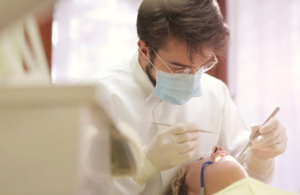Losing teeth isn’t just something that happens to kids; adults can lose teeth too. Understanding when and why this happens can help you take better care of your smile.
What Age Do Adults Start Losing Teeth?

Adults can lose teeth at any age, but it’s more common as we get older. Here’s a general timeline:
- Age 21: Most people have 28 adult teeth (after wisdom teeth removal).
- Age 44: About 69% have lost at least one tooth.
- Age 50: On average, 12 teeth are lost, including wisdom teeth.
- Age 74: Approximately 26% have lost all their teeth.
These numbers show that tooth loss becomes more common with age.
Is It Common for Adults to Lose Teeth?
Yes, it’s quite common. Many adults lose teeth due to various reasons:
- Cavities: Untreated tooth decay can damage the tooth’s center, leading to loss.
- Gum Disease: Infections can harm gums and bones, causing teeth to loosen.
- Injury: Accidents can knock out or damage teeth.
- Health Conditions: Diseases like diabetes and osteoporosis can affect dental health.
Regular dental visits and good oral hygiene can help prevent many of these issues.
How Many Teeth Has the Average 30-Year-Old Lost?
By age 30, most adults still have all their teeth. However, factors like dental care habits, diet, and health conditions can influence this. While there’s no exact number, maintaining good oral hygiene is key to keeping your teeth healthy.
At What Age Do Teeth Start to Deteriorate?
Teeth can begin to show signs of wear and tear in your 30s and 40s. Common changes include:
- Enamel Wear: The protective layer can thin over time.
- Gum Recession: Gums may pull back, exposing more of the tooth.
- Discoloration: Teeth might become more yellow or stained.
These changes are natural but can be slowed down with proper care.
How to Prevent Tooth Loss

Taking care of your teeth can help prevent loss. Here are some tips:
- Brush and Floss Daily: Remove plaque to prevent decay and gum disease.
- Regular Dental Checkups: Dentists can spot problems early.
- Healthy Diet: Limit sugary foods and drinks.
- Avoid Smoking: Tobacco use increases the risk of gum disease.
- Wear Protection: Use mouthguards during sports to prevent injuries.
By following these steps, you can keep your teeth healthy for years to come.
Remember, while some tooth changes are a natural part of aging, many issues can be prevented with good habits and regular dental care.

